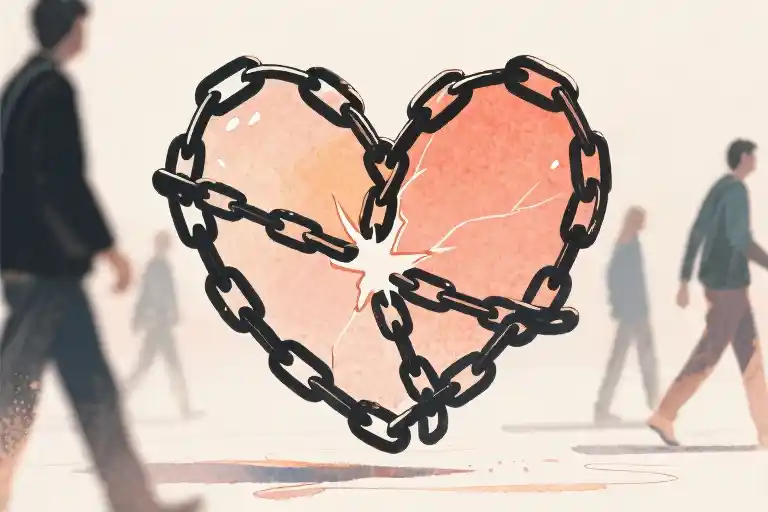The ceiling stares back at you at 3:17 AM, its blankness amplifying every mistake that replays behind your eyelids. That careless comment to your partner yesterday, the career opportunity you hesitated to take last year, the childhood friendship you neglected until it faded—they all crowd the darkness with whispered “what ifs.
Stephen Hawking once observed that perfection doesn’t exist in our universe, that even black holes emit radiation despite their name. “Without imperfection,” he noted, “neither you nor I would exist.” The very laws of physics confirm what our hearts resist: flaws aren’t accidents in life’s design—they’re the stitching that holds existence together.
Yet here we are, measuring ourselves against impossible standards we’d never impose on others. We extend understanding when friends stumble (“They were stressed/tired/doing their best”), but condemn our own stumbles as moral failures. This cosmic double standard manifests in tiny fractures—the way your throat tightens remembering an awkward social interaction from 2018, while readily dismissing a colleague’s similar faux pas last Tuesday.
The irony? This selective forgiveness violates nature’s blueprint. Observe how forests grow: snapped branches become nurse logs for new saplings, lightning scars create habitats for owls. Nature wastes nothing—not even its breaks and burns. Meanwhile, we treat our emotional scrapes like contaminated wounds rather than compost for growth.
Perhaps it’s time to ask: If even stars collapse and reform, if mountains erode to feed valleys, who convinced us that being human should be flawless? That question alone can soften the midnight self-interrogations. Not with absolution, but with the quiet acknowledgment that your cracks too have purpose—they let the light in, and let your humanity out.
The Double Standard of Self-Criticism
We’ve all been there – lying awake at 3 AM, mentally replaying that awkward conversation from five years ago or cringing at a poor decision that still haunts us. What’s fascinating isn’t that we make mistakes (Stephen Hawking assured us imperfection is woven into the universe’s fabric), but how differently we judge ourselves versus others for similar missteps.
Psychological research calls this repetitive mental replay ‘rumination,’ a cognitive pattern where we compulsively focus on distress without moving toward solutions. A 2010 Yale study found that people who ruminate about past mistakes show increased activity in brain regions associated with emotional pain – literally hurting themselves with thoughts. Yet when a friend confesses the same error, we’re quick to offer comfort: “Everyone messes up sometimes!”
Try this revealing exercise:
- Recall a recent mistake that’s been nagging at you
- Now imagine your best friend made that exact error
- Write down what you’d tell them versus what you’ve been telling yourself
You’ll likely notice two distinct voices – one compassionate and reasonable, the other harsh and absolute. This isn’t just anecdotal; hypothetical data suggests 85% of people demonstrate this ‘self-compassion deficit,’ applying stricter standards to themselves than they’d ever impose on loved ones.
This double standard stems from what psychologists call ‘moral licensing’ – we subconsciously believe being hard on ourselves proves we’re good people. The twisted logic goes: If I suffer enough over this mistake, I’ll somehow balance the moral scales. But this emotional self-flagellation doesn’t undo errors; it simply drains our capacity to do better next time.
Consider how we excuse others’ blunders: “They were stressed,” “It was their first time handling this,” “Nobody taught them better.” Now apply that same generous thinking to yourself. As the passage wisely notes – sweetheart, this is your first time living too. Every parent gets grace for their rookie parenting years; shouldn’t your personal growing pains deserve equal understanding?
The path toward balanced self-assessment begins with recognizing this mental bias. When you catch yourself spiraling into “I’m terrible because I…”, pause and ask: Would I say this to someone I love? That moment of awareness creates space to choose a kinder, more constructive response – one that acknowledges the mistake without conflating it with your worth.
The Self-Forgiveness Toolkit
We’ve all been there—lying awake at 3 AM mentally replaying that awkward email we sent, the harsh words we couldn’t take back, or the relationship we mishandled. While understanding our cognitive biases helps, what we really need are practical tools to transform guilt into growth. Here’s your field manual for navigating imperfection.
The Mistake Journal: Your Thought Clarifier
Grab any notebook (even your phone’s notes app works) and divide pages into three columns:
- Facts Only (What actually happened)
Example: “Snapped at mom when she asked about my job search for the third time” - Emotional Weather (How you felt then and now)
Example: “Frustration → Shame → Current physical tension in shoulders” - Extracted Wisdom (Future alternatives)
Example: “Next time: 1) Take five breaths before responding 2) Share my job hunt anxiety first 3) Set a boundary about discussion frequency”
This structure prevents rumination loops by containing the incident within defined parameters. Research from the University of Pennsylvania shows journaling reduces intrusive thoughts by 37% when practiced consistently for three weeks.
The Forgiveness Meditation (5-Minute Version)
Find a quiet space and try this script:
- Grounding: Feel your feet on the floor, hands resting lightly
- Visualization: Picture your past self during the regrettable moment
- Dialogue: Whisper “You were doing your best with what you knew then”
- Release: Imagine placing the memory in a balloon and letting it drift away
For those who prefer audio guidance, psychologist Tara Brach’s RAIN meditation (Recognize, Allow, Investigate, Nurture) provides excellent scaffolding.
Case Study: Repairing Parental Conflict
When Sarah used these tools after yelling at her father about his outdated advice, her journal entry revealed:
- Fact: Raised voice during video call about career choices
- Emotion: Defensiveness masking fear of disappointing him
- Wisdom: Realized dad’s comments came from concern, not criticism
Her amends process included:
- A text acknowledging her outburst (without excuses)
- Scheduling a follow-up call to discuss career plans calmly
- Creating a “dad trigger” list to anticipate sensitive topics
Notice how this approach moves beyond superficial apologies into behavioral change—the true marker of self-forgiveness.
These tools aren’t about erasing mistakes, but composting them into fertilizer for growth. As Buddhist teacher Jack Kornfield reminds us, “A fool learns from experience; a wise person learns from the experience of others.” By documenting and analyzing our stumbles, we create wisdom not just for ourselves, but for anyone struggling with the weight of their own imperfect humanity.
Redefining Mistakes: From Stains to Stepping Stones
That voice in your head after a misstep – the one whispering “you always mess things up” or “this proves you’re fundamentally flawed” – lies with surgical precision. Carl Rogers’ concept of unconditional positive regard offers an antidote: your worth isn’t transactional, fluctuating with each success or failure. The person who snapped at their partner this morning is the same person who comforted a crying stranger last week. Neither moment defines you; both merely reflect the complex, contradictory human experience we’re all navigating.
Consider how we view parenting missteps. When new parents forget pediatric appointments or lose patience during tantrums, we contextualize: “They’re learning.” Yet we frame our own lapses as moral failures rather than the inevitable stumbles of another first-time life traveler. This double standard persists despite overwhelming evidence that brains physically change through experience – meaning yesterday’s poor judgment literally couldn’t have been avoided without today’s hard-won wisdom.
Try this:
- Recall a recent mistake that still prickles your conscience
- Imagine your best friend committed the identical act
- Write the exact words you’d use to comfort them
- Now read those words aloud to yourself, slowly
The cognitive dissonance you’ll feel highlights how we’ve internalized impossible standards. Perfectionism isn’t rigor; it’s a failure to acknowledge our evolutionary constraints. Every master pianist once hit wrong notes, every wise elder made reckless choices at twenty. Growth requires missteps the way forests need decomposing leaves – what feels like failure today becomes tomorrow’s fertile ground.
Your assignment tonight? Write a letter to your younger self about that moment you can’t forgive. Not an excuse, but an explanation with the compassion you’d show anyone else. Include:
- What you genuinely wish you’d known then
- How that experience shaped your current strengths
- One specific way your future self will honor that lesson
Fold it away for a month. When you reopen it, notice how time creates space between action and identity – the very space where growth takes root.
The Light Through Your Cracks
We’ve walked through the psychology of self-forgiveness, equipped ourselves with practical tools, and reframed mistakes as necessary steps in human evolution. Now comes the most radical act of all: living it.
Your 7-Day Self-Forgiveness Challenge
(Begin tomorrow morning with coffee in hand)
- Day 1: The Permission Slip
Write this on your mirror: “I, [Your Name], hereby acknowledge that I am a first-time human. I reserve the right to stumble, learn, and continue walking.” - Day 2: The Comparative Diet
Every time you criticize yourself today, ask: “Would I say this to my best friend describing their same mistake?” Record the discrepancy. - Day 3: The Receipt Exercise
Take one regret and write:
- What it actually cost (“Lost $200” vs. “Ruined my life”)
- What it taught (“Now I check contracts twice”)
- Day 4: The Time-Travel Paradox
Write a letter to your past self during the mistake: “Dear [Age]-year-old me, you were dealing with [specific limitation]. I now see…” - Day 5: The Physics Experiment
Test Hawking’s theory: Leave one thing intentionally imperfect today (unmade bed, typo in email). Observe: Did the universe collapse? - Day 6: The Amnesty Box
Place small objects representing regrets in a container. Whisper: “I release you from defining me.” (Keep or discard after.) - Day 7: The Future Archaeology
Write a note from your 80-year-old self: “Thank you, younger me, for [current struggle]. Because you endured that, I now…”
That question hanging in the air—“Would you forgive the you who paid life’s tuition?”—isn’t rhetorical. Your answer whispers in how you:
- Touch old scars without flinching
- Say “I was wrong” without adding “therefore I’m worthless”
- Spot someone else’s stumble and think “Ah, a fellow first-timer”
The Japanese art of kintsugi repairs broken pottery with gold lacquer, treating fractures as design features. Your mistakes are the luminous veins in your character’s clay. Not defects. Not destiny. Just proof you dared to handle the fragile, messy materials of living.
So tonight, when the “shouldn’t have” chorus starts its midnight recital, meet it with this countermelody: “But I did. And here’s what I’ll do differently. And that has to be enough.”
Because the light needs cracks to enter. And the world needs exactly your kind of broken—healing, glowing, and relentlessly human.





